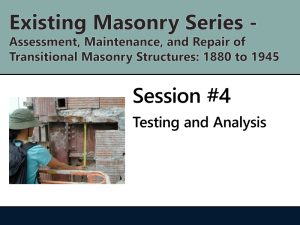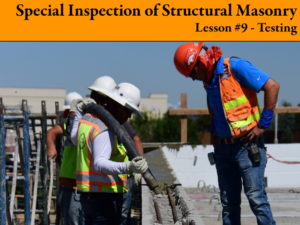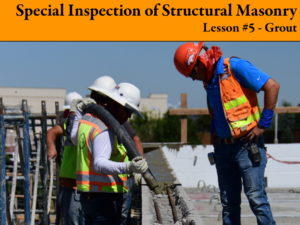
Assessment, Maintenance, and Repair of Transitional Masonry Structures #4: Testing and Analysis
Building on concepts presented during prior sessions, this session discusses approaches for obtaining information on material properties and how to use that information to understand structural capacity following applicable codes and guidelines. Several in situ methods are available for determining masonry mechanical properties including compression and shear strength.…


